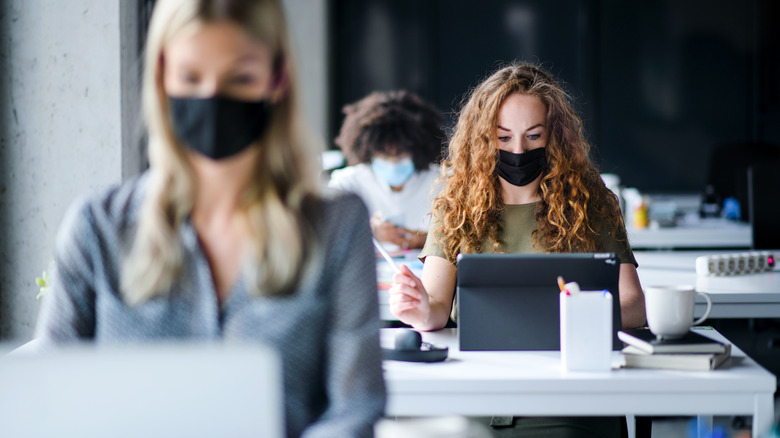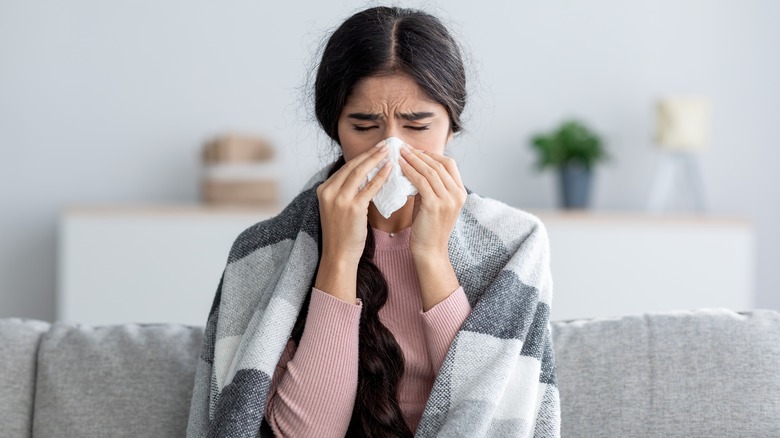What Effect Does Masking Have If You Suffer From Asthma?
Respiratory conditions can have a significant impact on our lung health and function. Asthma, for example, can cause inflammation and damage to the lungs, leading to reduced lung capacity and impaired breathing, per the American Lung Association. If you have asthma, you might be at higher risk of exacerbations when infected with COVID-19 or other respiratory infections, according to a 2021 article published in the Canadian Respiratory Journal. The authors also warn that poorly controlled asthma is one risk factor for pneumonia.
Respiratory infections like COVID-19 primarily spread through respiratory droplets produced when someone with the infection talks, coughs, or sneezes, says the United States Environmental Protection Agency (EPA). Wearing masks is generally advised to help reduce the spread of COVID-19. However, if you have asthma, you might wonder how safe wearing a mask is. As asthma is a chronic lung inflammation, wearing a mask may pose certain challenges and considerations, but it can also offer important benefits.
Can people with asthma safely wear face masks?
If you have asthma, you might feel a little anxious with a mask on, particularly if the mask is tight-fitting or made of materials that make it difficult to breathe through. The Asthma and Allergy Foundation of America (AAFA) also recognizes that wearing a mask can be challenging for some people with severe asthma and frequent asthma-related hospitalizations. However, there is no evidence that masking worsens asthma symptoms, says Medical News Today. Indeed, the AAFA still recommends that people with asthma wear masks to help reduce the spread of respiratory infections, including COVID-19 — and they note that anybody whose asthma is under poor control should work with their physician on treatment options.
The Asthma Allergy Network also advises wearing masks in public settings, avoiding large crowds, and maintaining social distancing. These measures are particularly important for people with asthma — the Centers for Disease Control and Prevention (CDC) says that those with moderate to severe asthma have a higher risk of hospitalization due to COVID infection.
How effective are face masks?
Face masks are crucial in reducing the spread of airborne viruses like coronavirus (COVID-19). When you wear a mask, it covers your nose and mouth, which are the main entry points for the virus. The mask traps the droplets, preventing them from spreading into the air and potentially infecting others. Studies have shown that while not all masks are created equal, some can filter out a portion of airborne particles, including the virus that causes COVID-19. Multilayered masks, in particular, can reduce the number of respiratory droplets by 50% to 70%, according to a 2021 study published in JAMA.
Ultimately, the decision to wear a mask should be made in consultation with your doctor. Try to discuss any concerns or difficulties you may have with wearing a mask, as well as any alternative options that may be available. If you choose to wear a mask, the AAFA recommends opting for a high-filtration mask, such as an N95 or KN95 mask.



